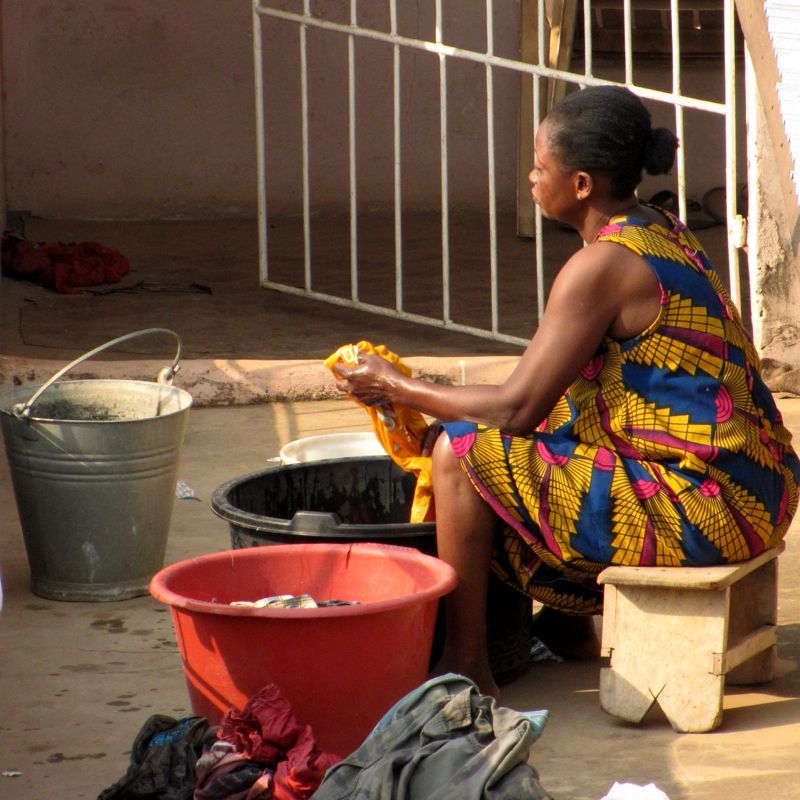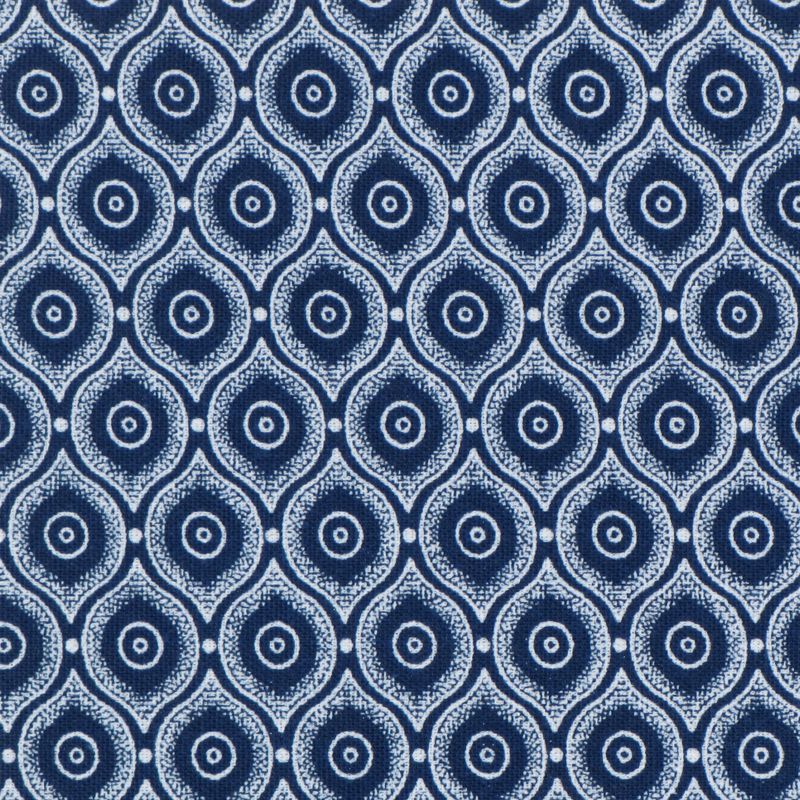Information about washing African fabrics
'I just love your African fabrics, but how do I wash them?'
Before we can answer you, we have to ask a question of our own.
Did you buy your African fabrics from The African Fabric Shop? Or, did you buy them from another supplier or in a market in Africa?
We can only provide washing guidelines for fabrics that we know: in other words, the fabrics that we sell. This means that the information published on this page applies only to fabrics purchased from The African Fabric Shop.
In general:
- We recommend washing your fabrics before use.
- Wash at no hotter than 30° C.
- Because our fabrics are all 100% cotton, expect them to shrink a tiny amount.
- If you are going to mix your African fabrics with others, try out some test pieces first to check that they will wash OK when they are pieced together.
See our guidelines for specific fabrics, below.
 Doing the laundry: Kumasi, Ghana
Doing the laundry: Kumasi, GhanaA Simple Test
A good way to test any fabric for colourfastness is to dampen a piece of white fabric, lay it on top of the 'suspect' fabric and iron them both until dry. If there is any rogue colour it will bleed out onto the white fabric.
Hand-dyed Indigo Fabrics
Unlike chemical dyes, indigo does not bleed. But because many hand-dyed indigo cloths contain excess indigo on the surface of the fibres, this excess can rub off onto your hands or your sewing machine. Therefore, you should wash indigo before you use it. Often there will be a lot of colour come out into the water. This is normal.
Soak the fabric for at least 15 minutes in cold water. Then wash at 30° C and rinse in cold water. Repeat until the water runs clear.
View and buy: Indigo Cloths

Hand-dyed Kola Nut & Indigo Fabrics
Kola nut is a natural dye that gives tones of brown-orange. When mixed with indigo, the colours combine to become almost black. You can wash kola nut & indigo fabrics by hand at 30° C. Because the kola nut is not as strong as indigo, you will probably lose some of the brown colour.
This fabric will vary with each batch and the amount of colour that washes out will vary. Over time the colours will generally soften.
Kola nut is quite a dusty dye. Therefore, you should clean your sewing machine after working with it.
View and buy: Kola Nut & Indigo fabrics

Shwe Shwe Fabrics: Indigo and Colours
Shwe Shwe fabrics - both Indigo and Colours - are very stiff when you buy them. This is just ordinary starch that is added when they are are printed in South Africa.
To remove the starch, wash these fabrics by machine at up to 40° C. These fabrics shrink by about 10%, but the dyes - including the indigo - will not bleed. Iron while damp.
View and buy: Shwe Shwe Indigos
View and buy: Shwe Shwe Colours

Langa Lapu Sunprints from South Africa
Pru Bolus who designs and dyes these fabrics recommends washing by hand at 30° C. This will help preserve the more delicate lines of the patterns. This fabric has a crisp feel to start with but will soften with washing and use.
View and buy: Langa Lapu fabrics

African Wax Prints and Hand-dyed African Batiks
These fabrics are used by tailors all over Africa. You can wash them by machine at 30° C.
View and buy: African Wax Prints
View and buy: Hand-dyed African Batiks

Mud Cloth - also called Bogolan
Handspun and handwoven in Mali, these cloths are painted with natural dyes that are made from mud and plants. Mud cloth can be washed in cold water without much colour loss. However, as the dyes are natural and may wash out over time, dry cleaning is preferable.
View and buy: Mud Cloth
